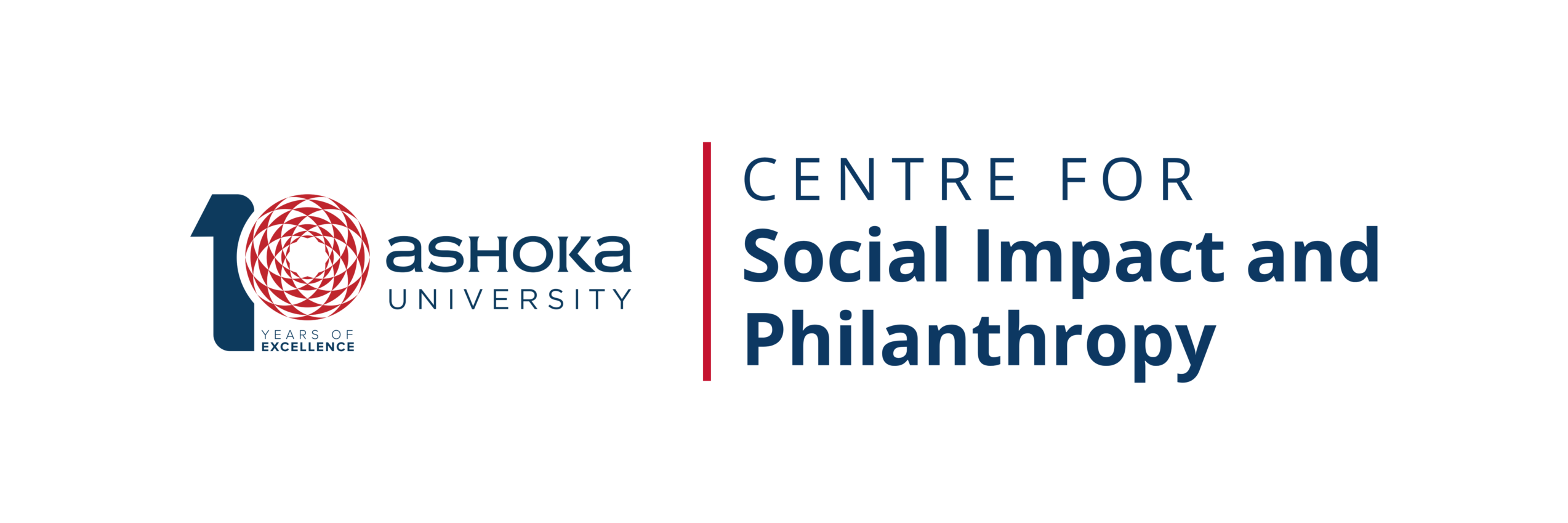About us
The Centre for Social Impact and Philanthropy (CSIP) at Ashoka University is India’s first academic centre focused on enabling strategic and robust philanthropy for social impact. It strives to provide civil society with evidence-based research and knowledge products to grow scale and impact, convening platforms for norm-setting and collaborative learning, and leadership development programmes that strengthen capability and sustainability.
Job Description
About Ashoka University
Ashoka University is a private, non-profit university. An unprecedented example of collective public philanthropy in India, it is a pioneer in its focus on the Liberal Arts. The University offers undergraduate and postgraduate programs across the humanities, social sciences and fundamental natural sciences. The aim is to help students become well-rounded individuals who are able to think critically about issues from multiple perspectives, communicate effectively and go on to become ethical self-aware leaders with a commitment to public service. Ashoka has built collaborations with University of Pennsylvania, University of Michigan, Carleton College, King’s College London, Sciences Po, UC Berkeley, Trinity College Dublin and Yale University. To learn more about Ashoka University visit http://ashoka.edu.in
About the Centre for Social Impact and Philanthropy (CSIP)
The University’s focus is on attracting the brightest students, putting them under the guidance of the most inspirational faculty, and developing a global reputation for innovative research. Faculty and students come from across the country, and the world, and Ashoka is committed to maintaining the highest intellectual and academic standards.
Along with having a robust academic program, the University is home to Centers of Excellence that address some critical areas of relevance to society, and India in particular. This includes the Centre for Social Impact and Philanthropy (CSIP), which aims at being the foremost Centre in India for research and capacity-building towards the critical advancement of social impact. The Centre’s research will be focused on critical topics in the space of social impact, in strategic philanthropy in particular, with emphasis on applied research.
About the role
Centre of Social Impact and Philanthropy is looking for a Program Manager in Capacity Building specifically for their student and alumni engagement programmes including the Mother Teresa Fellowship (MTF) Programme. The person will also have the responsibility to conceptualise and manage alumni programmes for non-profit and philanthropic leaders like Strategic Nonprofit Management in India, Jumpstart Philanthropy etc.
The candidate should have the flexibility to work on multiple projects, display a natural aptitude for new programs, work with multiple stakeholders, have a deadline-driven approach and be a team player. The candidate should be able to work in a fast moving and dynamic environment.
The Program manager should at least have a master’s degree with work experience on people development or have been a part of leadership programs. The candidate should have 5-7 years of experience working with minimum 2-3 years of field experience. Knowledge and experience of organising events, workshops and seminars is desirable. Any community building experience is a plus. The candidate should have strong verbal communication skills and display a high level of creativity
Key Responsibilities
- Develop the student engagement strategy of the Centre which will include speaker series, experiential learning programmes, social impact club and other events related to campus.
- Liaison with student government, social service clubs on campus, ELM teams, Career Development (CDO), relevant faculty and staff for various student engagement activities.
- Assist with the management of MTF including orientation, workshops, and liaising with alumni to create the Alumni Council.
- Build a network of resource people, facilitators, mentors etc. in the sector to provide support at various levels to student and alumni interested and work in social impact.
- Conceptualize and propose other avenues and opportunities that Ashoka University can provide to its alumni to establish itself as a leader in social impact education in India.
- Design and develop alumni engagement programmes for capacity building programmes hosted by the Centre for nonprofits and philanthropists.
- Ensure seamless budgeting, reporting to donors and financial management.
Requirements
Does this sound like you?
- Minimum 5-7 years of work experience, with some experience in a mentoring/managerial role.
- Highly entrepreneurial, self-starter.
- Deep understanding of working in the development sector and the challenges faced thereof.
- Experience working with or building a social enterprise would be preferred.
- Ability to manage multiple partners and liaison with them. A prior personal established network is a plus.
- Experience working with and mentoring young people, facilitating workshops and learning journeys would be preferred.
- Experience in building communities and managing their sustained engagement.
- Ability to work remotely and manage multiple work stream simultaneously.
- Enjoys working in a dynamic and expanding team
- Right to work in India
Benefits
Compensation: Competitive, based on experience.
Location: Based in NCR, or elsewhere with travel to Sonepat 1-2 days a week. Regular travel to partner locations and workshops.
To Apply: Please click here to access the CSIP career portal and click on “I’m interested” to start your application process. Only shortlisted candidates will be contacted.


